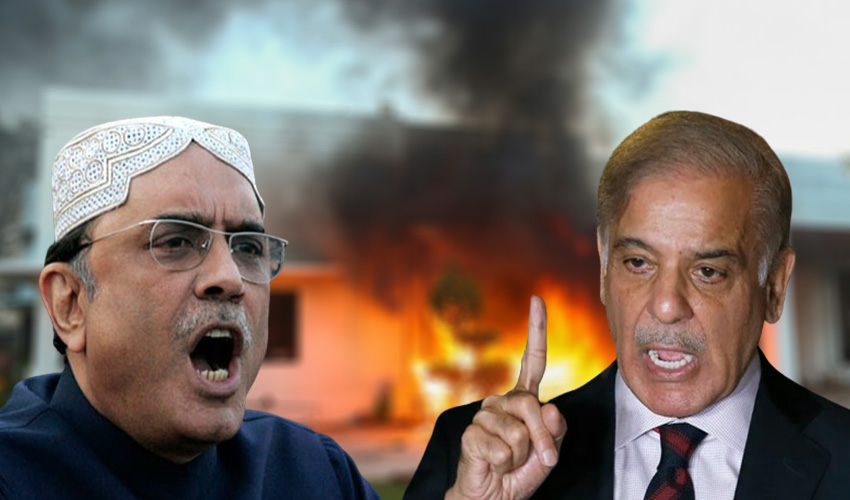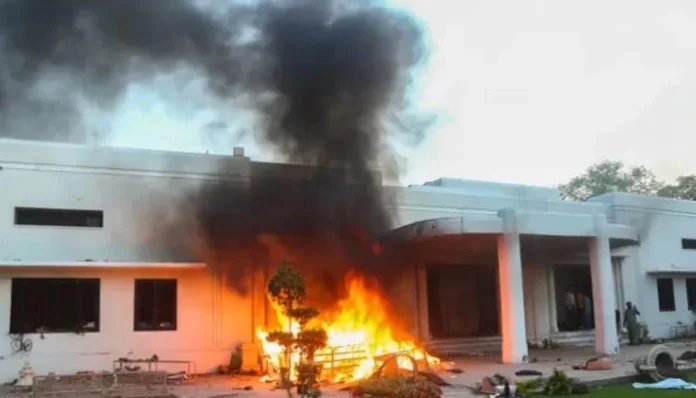President Asif Ali Zardari called the May 9 riots a “dark day”http://”dark day” in the nation’s history that badly damaged the nation’s reputation as the nation marked the first anniversary of the unrest.
President Zardari bemoaned the riots’ servitude to Pakistan’s adversaries and stated that politically motivated attacks by crowds on military facilities constituted a “plot to subvert the authority of the state, erode the rule of law, and erode the institutions.”
The president made reference to the riots that erupted following the arrest of Imran Khan, the founder of the Pakistan Tehreek-e-Insaf (PTI) and former prime minister, in connection with a £190 million settlement case. Hundreds of protestors stormed and vandalised government buildings and military installations across the nation.

The General Headquarters (GHQ) in Rawalpindi and Jinnah House, among other civil and military buildings, were attacked by the miscreants during the riots. The protestors were to be tried under the Army Act after the military dubbed May 9th “Black Day.”.
Following the event, the PTI was the target of a statewide crackdown that resulted in the arrest of hundreds of people, some of whom are currently being prosecuted in military courts for their alleged role in the rioting.
In addition, hundreds of influential politicians and leaders broke from the previous ruling party in an effort to disassociate themselves from the occurrence.
President Zardari declared, “We have never seen such vandalism in responsible democracies, with violent mobs wreaking havoc on state properties for political gains,” emphasising that there would never be tolerance for any attempt to abuse these rights in order to encourage violence.
The president emphasised the need for a concerted effort by all political parties to promote “tolerance, democratic values, and political dialogue and provide a clear direction to the nation” while demanding responsibility and the prosecution of those involved in the tragedy.
Zardari said that the freedom to engage in constructive criticism and dissent was a fundamental component of the Constitution, but it also required “utmost responsibility, adhering strictly to the bounds of constitutional and legal provisions” in its exercise.






